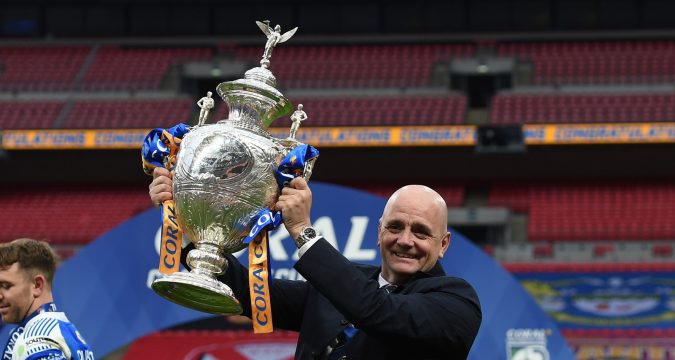 League Express editor MARTYN SADLER pays tribute to Leeds Rhinos coach Richard Agar on his victory last Saturday in the Coral Challenge Cup Final.
It would be hard to find anyone in Rugby League who had a more varied playing and coaching career than Richard Agar.
As a player, he joined Dewsbury Rams in August 1993 as a 21-year-old s
League Express editor MARTYN SADLER pays tribute to Leeds Rhinos coach Richard Agar on his victory last Saturday in the Coral Challenge Cup Final.
It would be hard to find anyone in Rugby League who had a more varied playing and coaching career than Richard Agar.
As a player, he joined Dewsbury Rams in August 1993 as a 21-year-old s Agar’s experience behind the Rhinos triumph
 League Express editor MARTYN SADLER pays tribute to Leeds Rhinos coach Richard Agar on his victory last Saturday in the Coral Challenge Cup Final.
It would be hard to find anyone in Rugby League who had a more varied playing and coaching career than Richard Agar.
As a player, he joined Dewsbury Rams in August 1993 as a 21-year-old s
League Express editor MARTYN SADLER pays tribute to Leeds Rhinos coach Richard Agar on his victory last Saturday in the Coral Challenge Cup Final.
It would be hard to find anyone in Rugby League who had a more varied playing and coaching career than Richard Agar.
As a player, he joined Dewsbury Rams in August 1993 as a 21-year-old s 